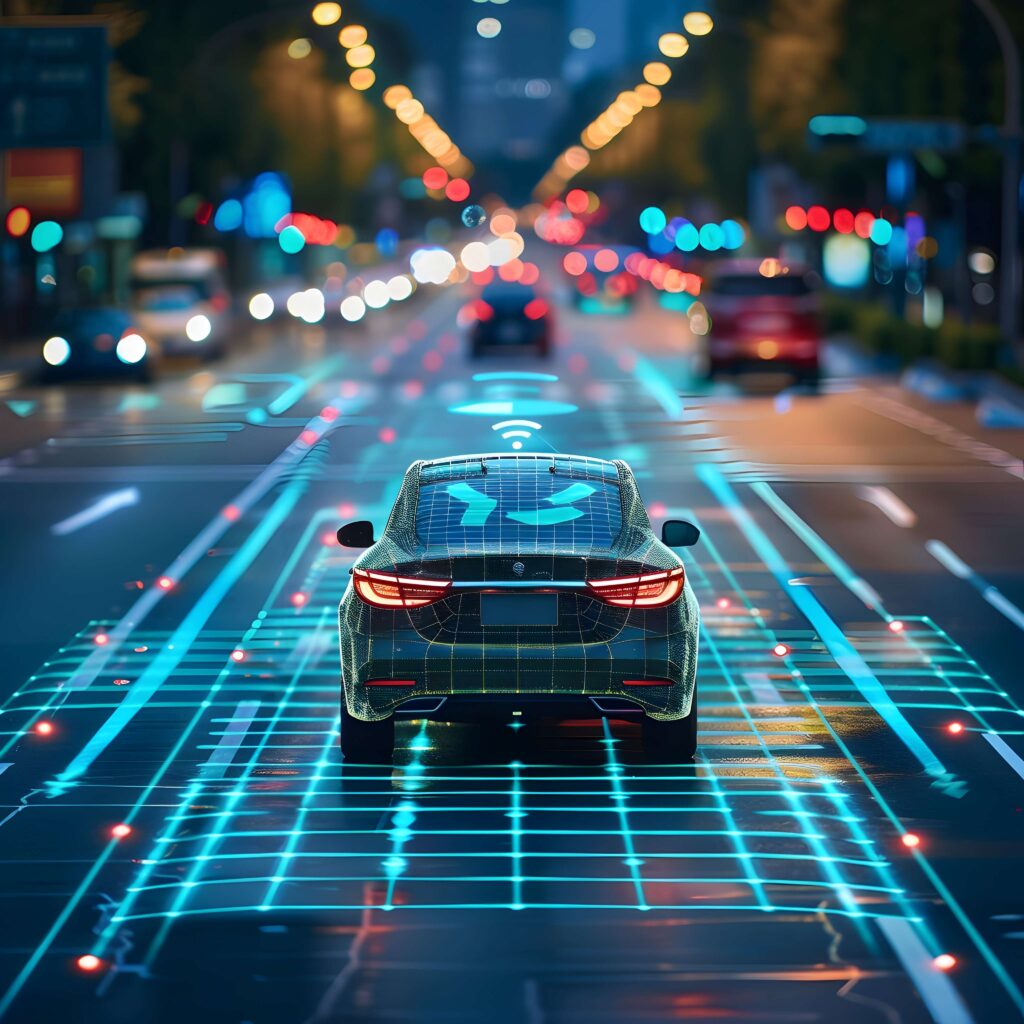Author: Nick Rassool | Posted On: 17 Oct 2024

Self-driving cars, or autonomous vehicles (AVs), have the potential to revolutionise transportation globally. As AV technology advances, the industry moves closer to a future where these vehicles can prevent accidents, save lives, and reduce medical costs associated with traffic incidents. Moreover, self-driving cars could positively impact the environment by improving fuel efficiency and reducing emissions. While challenges remain, companies like Waymo, Tesla, and other major automakers are working to overcome these hurdles.
the safety of self-driving cars
Human error is responsible for the vast majority of traffic accidents. The National Highway Traffic Safety Administration (NHTSA) found that 94% of road traffic accidents in the US are caused by human error. According to the World Health Organization (WHO), approximately 1.19 million people die in road crashes globally each year, with millions more injured.
Self-driving cars, equipped with advanced sensors, real-time data processing, and AI-driven decision-making, have the potential to dramatically reduce these numbers. By eliminating common human errors such as distracted driving, fatigue, speeding, and impaired driving, AVs could prevent thousands of fatal accidents and reduce injury rates. For instance, Waymo has reported an 85% reduction in injury-causing crashes in the locations where it operates, compared to human benchmarks.
financial impact: saving on medical and insurance costs
The potential for self-driving cars to save lives also translates to significant cost savings. In the United States, in 2020 alone, traffic accidents resulted in about 40,000 deaths and 2.1 million emergency unit visits, equating to an estimated $430 billion in medical costs, quality of life, and lives lost. Fewer accidents would mean fewer hospital admissions, surgeries, and long-term care for accident victims.
Insurance costs could also decrease as crash frequency and severity decline. Insurance companies are likely to adjust premiums in favour of autonomous vehicles if they prove safer than human drivers.
environmental benefits of self-driving cars
Beyond safety and financial savings, self-driving cars offer potential environmental benefits. AVs can drive more efficiently than humans, potentially reducing fuel consumption through optimised routes, steady speeds, and smoother acceleration and braking. These behaviours could contribute to lower emissions, helping combat air pollution and reduce transportation’s carbon footprint.
Many self-driving vehicles, like Waymo’s autonomous fleet, integrate electric vehicle (EV) technology. By combining AV advancements with EV benefits, the industry could play a significant role in mitigating climate change through reduced fossil fuel dependence and greenhouse gas emissions.
challenges to widespread adoption
Despite the promising benefits, several hurdles remain before self-driving cars can achieve mass adoption:
- Technological Refinement: AV technology must evolve to handle diverse driving conditions, including inclement weather and complex urban environments.
- Regulatory and Legal Framework: The industry faces a complex landscape of laws and regulations that vary across regions, requiring careful navigation and collaboration with authorities.
- Public Trust and Economic Feasibility: Gaining public trust is crucial for AV success. Concerns about safety, job displacement, and privacy need addressing. Additionally, high production and maintenance costs present an economic challenge, with economies of scale key to improving accessibility.
conclusion: a future worth pursuing
Self-driving cars represent not only a technological revolution but also a potential solution to pressing societal issues: road safety and environmental sustainability. By potentially preventing thousands of accidents, saving lives, reducing medical costs, and cutting emissions, autonomous vehicles could transform transportation.
Though significant hurdles remain, including technological refinement, regulatory approval, and public trust, the long-term benefits make pursuing widespread AV adoption worthwhile. Countries that move faster in adopting AV technology will likely experience these positive impacts sooner, whereas slower rollouts will prolong the societal, economic, and environmental costs associated with conventional driving. The likes of the US, China, and Singapore are leading with urban rollouts anticipated by 2025-2030, supported by robust testing and regulatory frameworks. However, in Australia, while progress is being made, major city rollouts are not expected until 2030-2035.
As companies like Waymo, Tesla, and traditional automakers continue their research and collaborate with regulators, we move closer to a future where safer, more efficient, and environmentally sustainable transportation becomes a reality.
Keep up to date with the latest research from Fifth Quadrant here. For any questions or inquiries, feel free to contact us here.
Posted in Uncategorized

